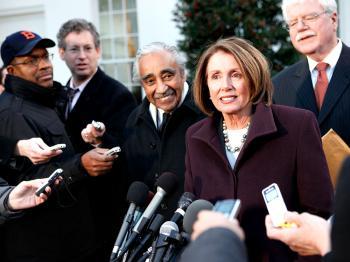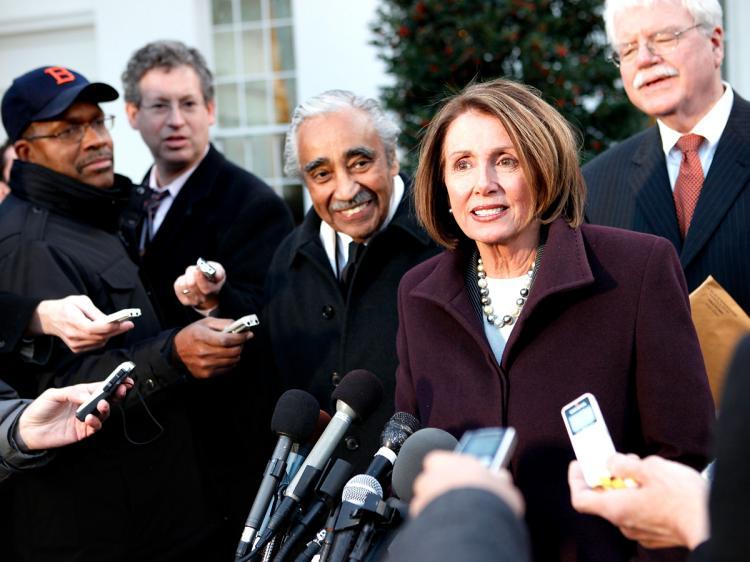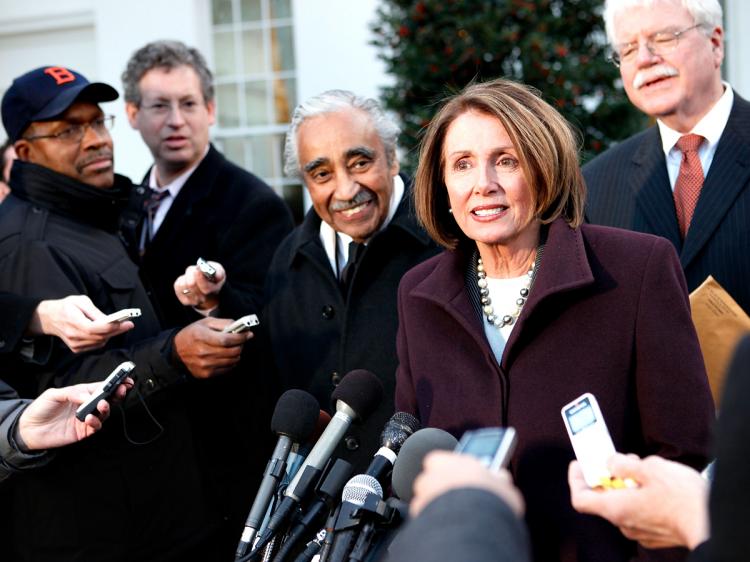A letter signed by Republicans Dave Camp (R-MI), John Kline (R-MN), and Joe Barton (R-TX), ranking members of the Ways and Means, Education and Labor, and Energy and Commerce committees, respectively, was sent to the House Speaker Nancy Pelosi (D-CA) on Tuesday. The letter called for “an open, fully bipartisan negotiation process” in finalizing the bill.
“The bill is too important, affects too much of our economy and touches too many lives to be written in secret by a select few Democrats and lobbyists,” the letter contended.
Senate Majority Leader Harry Reid (D-NV) issued a statement, stating that “what should truly concern the American people is the Republicans’ shamelessly transparent strategy of relying on misinformation and myths to stop reform at all costs.”
Assistant to Speaker Pelosi, Chris Van Hollen (D-MD), addressed the issue of coverage at a press conference Tuesday.
“Let me just point out first that the health care debate and this piece of legislation has been subjected to an unprecedented degree of public scrutiny and input,” Rep. Van Hollen said.
When asked whether President Obama is accepting of closed-door meetings in finalizing health care legislation at Wednesday’s press briefing, White House Press Secretary Robert Gibbs stated, “The president wants to get a bill to his desk as quickly as possible.”
White House meetings between the president and key congressional Democrats continued on Wednesday.
C-Span Coverage
The letter from C-Span Chairman and CEO Brian Lamb requested the Senate and House leaders to “open all important negotiations, including the conference committee meetings” to continued coverage. C-Span’s coverage of the topic has consisted of hundreds of hours of video since the introduction of the Health Care Act in 2009.
“Now that the process moves to the critical stage of reconciliation between the Chambers, we respectfully request that you allow the public full access, through television, to legislation that will affect the lives of every single American,” the letter stated.
This is not the first time C-Span has sent letters to the government branches. Recent examples include a 2005 letter offering to assist the Supreme Court and Chief Justice Roberts in exploring televised high court proceedings, and a 2007 letter to Speaker Pelosi outlining in-place technology and requesting camera additions.
C-Span has established its role as an unbiased eye on the inner workings of the federal government, mostly covering the Legislative Branch committee and floor proceedings.
A statement on C-Span’s website describes C-Span as a private non-profit organization created by the cable television industry in 1979, with the intent of providing public access to the political process while receiving no government funding.
C-Span letter: http://www.c-span.org/pdf/C-SPAN%20Health%20Care%20Letter.pdf






